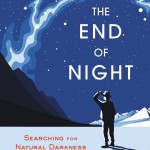I am a troubled omnivore. Or more precisely: I am a troubled, Christian omnivore. I eat meat, but I do not do so without caution and without doubts; and it is my Christianity that is responsible for much of this caution and many of these doubts.
I find the relationship between the Christian and food a very complicated one. On the one hand, the Christian is uniquely situated to recognize the sacramentality of the eating act (and with it, to take his food with a heaping portion of delight and thanksgiving). He is uniquely situated to observe that God did not merely breathe the breath of life into man at the creation, but that His breath is breathed into every man at every meal; through – and only through – the life that he gives to other creatures. An awe-full mystery! To eat is to participate in the life of creation and in the life and love of its Creator. (But this, I fear, is too quick and quaint a synopsis of the sacramentality of the eating act — there is too much mystery here to state the matter so plainly. This sacrament and this mystery is more likely to be illuminated by expression than by analysis.)
Wendell Berry has perhaps expressed and illuminated this sacramental mystery as well as anyone. One passage in particular has often come before my mind:
“To live, we must daily break the body and shed the blood of Creation. When we do this knowingly, lovingly, skillfully, reverently, it is a sacrament. When we do it ignorantly, greedily, clumsily, destructively, it is a desecration…”
Three potent and illuminating sentences. A wonderful expression of the wonder that is eating (and of our life from the earth more generally). But I take it that Berry, in this passage, is doing more than expressing. He is also presenting us with the very real possibility that our eating is not guaranteed to be sacramental; that it only may be sacramental; and that we are in ever present danger of our eating being the very antithesis of a sacrament.
I said that the relationship between the Christian and his food is a complicated one. On the one hand, as I said, the Christian is uniquely situated to recognize the sacramentality of the eating act; but, on the other hand, as Berry tells it, he is therefore also uniquely situated to recognize the razor’s edge upon which all of us eat. Eating is both a great delight and a grave danger.
What makes it especially dangerous is that the razor upon whose edge the Christian eats is a razor shrouded in fog. At least I have found it foggy: I have found it far from obvious how we are to answer the questions Berry has put before us. What does it mean to eat “knowingly, lovingly, skillfully, and reverently”? What does it mean to eat “ignorantly, greedily, clumsily, and destructively”? These are very difficult questions.
Today I am only interested in talking about one element of these difficult questions, one with which I have found a unique difficulty. It is the question of meat. May I kill a fellow creature for its flesh? And how should I valorize this killing and this eating? Unfortunately, I haven’t the space to consider – or even begin to consider – an answer to these questions. My project is much more modest: simply to describe the “unique difficulty” I have found regarding the question of meat, and the fear and trembling this difficulty has caused me in my own killing and eating of my fellow creatures.
***
There are all sorts of factors – many of them unique to our historical situation – which make a great deal of moral trouble for the omnivore. A massive amount of recent media has made many of these factors relatively well-known: the horrific living conditions of the vast majority of American livestock; the ecological, economic, and cultural damage of the agricultural systems that bring us the vast majority of our meat; the poor (and often harmful) quality of the vast majority of our meat — but I’m not going to rehearse these sorts of troubles. For one reason, beating a dead horse seems especially inappropriate in light of our topic. For a more important reason, I promised at the beginning of this essay to talk about the unique difficulty that Christianity makes for the omnivore.
So to that. The books which compose the Christian Bible together present a future vision of a New Order in which God, men, and animals live amongst each other in a tender, non-violent, and beautiful harmony (in biblical speak, “The Kingdom of God”). Of course, the biblical story never lets us forget the “future” of this future vision; it places us within the Old Order, which it describes as diseased and damaged (in biblical speak, “fallen” and “sinful”). But part of the grandeur and narrative beauty of the biblical story is the way in which it does not place us entirely in the Old Order, the way in which it weaves the Old and the New together in the cross and resurrection of Jesus. The Church lives in the Old, the story goes, but somehow has at least a big toe in the New. “We live in the overlap of the ages,” N.T. Wright has well put it. This is, of course, a mystery. But it is no less morally significant for being mysterious. In fact, a great deal of the moral vision of the New Testament rides on this intersection between the Old and the New: central to the mission of the Church is that it practice and proclaim the New Order in the Old.
And there in lies the trouble for the Christian omnivore: How does the shepherd kill the lamb and eat its flesh when he is called to practice and proclaim a restored creation in which no blood will be shed?
This has been a haunting question for me — especially after those days and nights battling the Vermont winter or a mother’s mastitis or an infection to keep a newborn lamb alive. I have answers to this question – some of which I happen to think are pretty good answers. But they are not nearly good enough for me to slough off this question entirely. I carry doubts. Probably I will always carry doubts. And many more questions. Even if there are times when we humans may kill and eat another creature, how ought we to do so? What would it mean to kill and eat a lamb “knowingly, lovingly, skillfully, and reverently”?
***
I have not claimed that the biblical narrative is, in fact, incompatible with the consumption of meat. But I have claimed that there is at least a dissonance between the biblical narrative and the consumption of meat. Maybe the biblical story does not prohibit the eating of meat, but it certainly does not praise the eating of meat, and it is not patently obvious that it permits the eating of meat. What does seem obvious is that if the Christian does eat meat, he cannot escape the tragedy that lies in the killing of a fellow creature. And this, even if he does no wrong in killing this creature, and no wrong even in delighting in the partaking of that creature’s flesh. If this were the case, the Christian omnivore would find himself in much the same paradoxical position as the Old Testament Israelite whom God had commanded to sacrifice his prized and beloved goat: lament the slaughter; give thanks for God’s grace and provision even in this tragedy; and celebrate the future Kingdom of God in the feast that followed.












